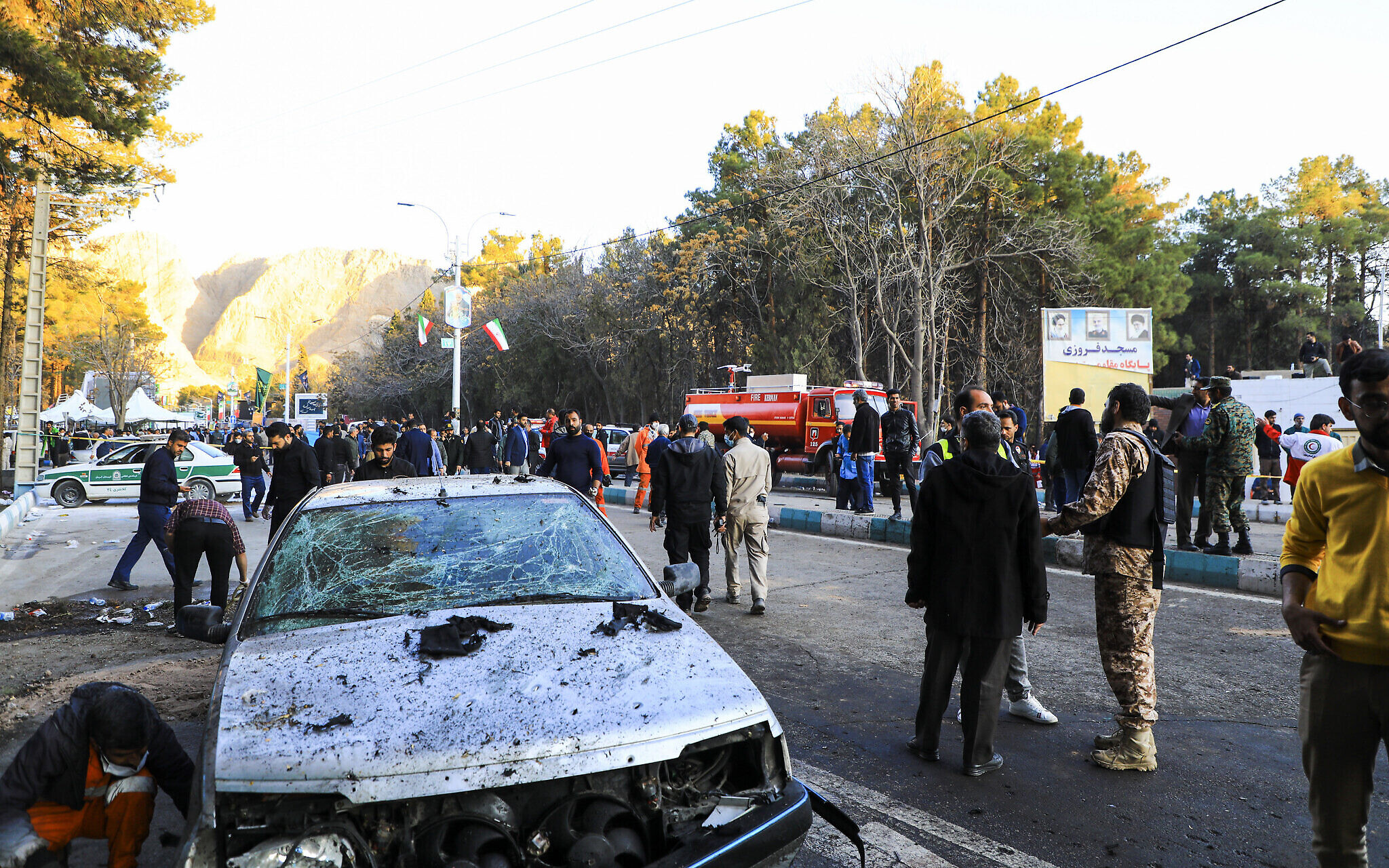On Wednesday, January 3, two explosions killed almost 100 people and wounded scores at a ceremony commemorating the previous commander of the Quds Forces in the Iranian Revolutionary Guard Corps (IRGC), Qassem Soleimani.
The explosions, which were then revealed to be suicide bombings, took place in the southeastern city of Kerman and happened 20 minutes apart.
Following the explosions, Iranian President Ebrahim Raisi and Iranian Supreme Leader Ali Khameini condemned the bombings and vowed retaliation. Raisi asserted to Tehran’s enemies “Iran’s power and the whole world knows its strength and capabilities” and that their forces will “decide on the place and time to take action.”
After the events, Iranian authorities stated that they have captured 11 people suspected of involvement and the country’s intelligence agency stated that two people were detained for “providing support” to the two suicide bombers and nine others for suspected links to the incident.
ISIS Claims Responsibility
Shortly after the incident, the Islamic State claimed responsibility for the attack in a statement via its Telegram channels, claiming two of its members had detonated explosive belts in the crowd that gathered around the cemetery.
The United States, represented by White House spokesperson John Kirby, claimed it was “in no position doubt Islamic State’s claims that it was responsible for Wednesday’s attack.”
However, some political analyses suggest skepticism of the timing of the explosions and their perpetrators, which took place around two weeks after an Israeli drone assassinated IRGC high ranking general Razi Mousavi and one day after an Israeli drone assassinated Saleh al-Arouri, the deputy chief of Hamas’s political bureau, in Beirut.
Indeed, an increase in Israel’s surgical strikes against military targets and locations has been accompanied by a rise in the bombing of residential neighborhoods and gatherings, leaving few areas in the region safe from Israeli targeting.
Many have considered Israel’ strikes against different Lebanese factions, including the Lebanese Army, and its operations across the region as attempts to trigger a wider regional conflict, and thereby unlocking and legitimizing their need for further military and material support from the United States and other Israeli allies.
Timing
The United Nations, European Union, Arab countries and many others have denounced the bombings with many not pointing out a clear perpetrator.
Iranian authorities, on their part, have not taken the Islamic State’s statement seriously, and have linked the events to the current conflict taking place in Gaza.
At the end of his speech, Raisi said that the Al-Aqsa Flood operation “will be the end of the Zionist regime [Israel].”
In a televised speech, Hezbollah Secretary General Hassan Nasrallah stated that “ISIS is an American invention”, and discussed how the United States’ interests lie in Israel’s targeting of high ranking personnel within Iran and Hezbollah.
With different military groups and factions joining in on the fighting, including the Lebanese Hezbollah, the Yemen-based Houthis and many others, the conflict has taken an increasingly regional nature, at risk of blowing up to an all-out regional war.


